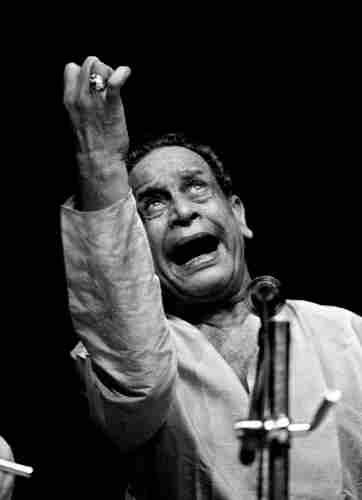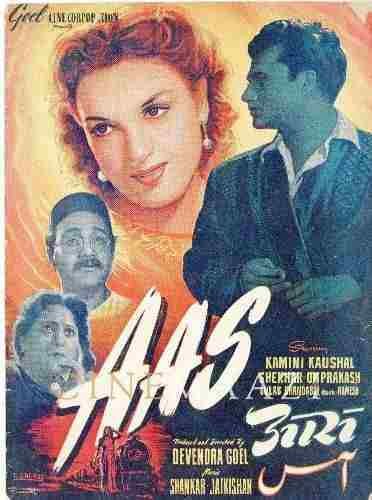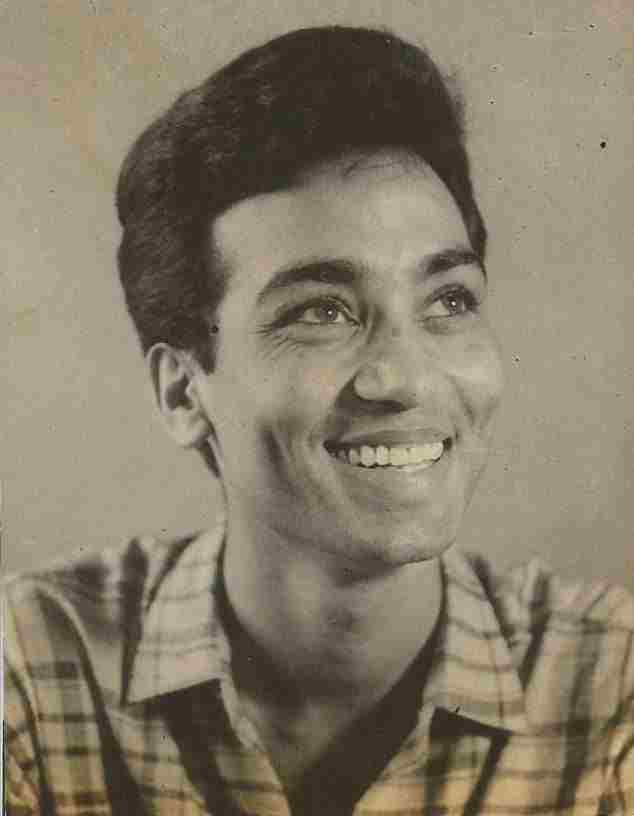Bhupinder Singh: The Rare Gems
Subscribe to read full article
This section is for paid subscribers only. Our subscription is only $37/- for one full year.
You get unlimited access to all paid section and features on the website with this subscription.
Not ready for a full subscription?
You can access this article for $2, and have it saved to your account for one year.
He is a voice for the ages. From ‘Meethe bol boley’ to ‘Ek akela iss shahar mein’, he has mesmerized listeners for decades with his mellifluous baritone. On his birth anniversary, Shantanu Ray Chaudhuri discovers 10 relatively unsung gems of the singer.
Time has not dimmed its luminosity one bit. More than a hundred and sixty years after Mirza Ghalib penned the sher in the ghazal ‘Muddat hui hai yaar ko mehmaan kiye hue’, and over forty-five years after Gulzar tweaked ‘Jee’ to ‘Dil’ for the mukhda of one his greatest creations, Mausam’s (1975) ‘Dil dhoondta hai’ remains not only the ultimate ode to the longing for leisure, for time itself, but also Bhupinder Singh’s most celebrated song, his sonorous voice in both versions the very epitome of remembrances of memories past and lost.
Singh grew up in Delhi’s West Patel Nagar, his father introducing him to music. After learning the guitar he started working with All India Radio (AIR), finding a mentor in Satish Bhatia who had joined AIR in 1948 and who conducted the choral group at the organization for years until his retirement in 1987 as Chief Producer (Music). Recognizing the ‘different’ timbre of his voice, Bhatia gave Bhupinder assignments as a singer and was also instrumental in introducing him to Madan Mohan. Impressed by Bhupinder’s rendition of Bahadur Shah Zafar’s ‘Lagta nahin hai dil mera’, the composer invited him to Bombay and offered him ‘Hoke majboor mujhe usne bhulaya hoga’ in Chetan Anand’s Haqeeqat (1964). It was a debut to remember, given that he was to accompany the greatest playback singers of the era, Mohammad Rafi, Manna Dey and Talat Mahmood.
Chetan Anand gave him his next big break too, this time under the baton of Khayyam, a composer for whom Bhupinder would go on to deliver some of his best, in Aakhri Khat (1966). Now part of Hindi film’s hall of fame thanks to its status as Rajesh Khanna’s debut, the film boasts two numbers which have stood the test of time – Lata Mangeshkar’s ‘Baharon mera jeevan bhi sanwaro’ and Mohammad Rafi’s ‘Aur kuch der thahar’. Despite this, Bhupinder’s ‘Rut jawan jawan’ – shot on Bhupinder himself (playing a singer of the band Bongo Boys at the La Cabana) – has endured. This waltzy composition benefits immensely from Kaifi Azmi’s lyrics, both an ode to love and a paean to sorrow: gham khushi khushi chhupa liya, dard ko bhil dil ban aliya, zindagi ne azmaa liya, tum toh na lo imtihan. Khayyam incorporates a wonderful trumpet refrain (by the celebrated Goan trumpeter, Chic Chocolate, who appears in the song) and uses the harmonica to great effect. But in the end what you carry with you is the hope-and-pathos-soaked voice that will force you to put the song on loop.
With singers like Mohammad Rafi, Manna Dey and Mukesh at the top of their game, followed soon after by the meteoric rise of Kishore Kumar post Aradhana (1969), it wasn’t going to be easy for a new talent to break through. The very tonal base that had made Satish Bhatia sit up and take notice and that would set him apart from the top singers of the era also meant that his voice never became the voice of superstars like Rajesh Khanna and Amitabh Bachchan. Despite rendering classics like ‘Beete na beetayi raina’ (Parichay, 1972), which fetched Lata Mangeshkar the National Award for Best Singer, and ‘Meri awaaz hi pehchan hai’ (Kinara, 1977), Bhupinder remained largely on the fringes as a playback singer with one-off hits. Also, with the onset of the 1970s, the sound of Hindi film music was changing, making it increasingly difficult for someone with a classical base to get ahead (even Rafi found himself relegated).
This new sound of music ironically provided Bhupinder with an alternative as a guitarist in some of the iconic songs of the period. His fame as a guitarist had begun to spread and he became part of R.D. Burman’s team of musicians. It can be said without a doubt that Bhupinder is the greatest guitarist to have given background scores in Hindi films. A fact endorsed by one no less than the legendary Naushad.
The guitar riffs in ‘Dum maro dum’ (Hare Rama Hare Krishna, 1971 – Dev Anand’s brief that inspired the number was a delightful ‘imagine smoke and clouds of heroin’), ‘Chura liya hai’ (Yaadon Ki Baraat, 1973) and ‘Mehbooba mehbooba’ (Sholay, 1975) are now the stuff of Hindi film music legend as is his work in that divine Madan Mohan composition ‘Tum jo mil gaye ho’ (Hanste Zakhm, 1973). But Bhupinder’s skills as a guitarist were not limited to these zingy youthful numbers.
Consider, for example, Amrita Pritam’s exquisite poem ‘Ambar ki ek paak surahi’ in the now-forgotten 1976 film Kadambari (based on a novel by the author/poet), the only time Ustad Vilayat Khan composed for films, which Naushad considers as among the best examples of the use of guitar in a Hindi film song. Or, ‘Chalte chalte’ (Pakeezah, 1971), or for that matter, that supreme test of blank verse in Kinara (1977), ‘Ek hi khwab’, which had briefly stumped even R.D. Burman, before Bhupinder came up with the unconventional tune for a most unconventional song.
He was also one of the first Hindi film composers and singers to start cutting private albums, primarily ghazals. Here too he was a pioneer who introduced Western components like the Spanish guitar, bass and drums to the ghazal, a few years before Jagjit Singh made it de rigueur. He also took on the challenge of putting Gulzar’s non-film songs to music in his LP titled Woh Jo Shayar Tha, probably drawing on his experience with ‘Ek hi khwab’.
It has been years since Bhupinder has been heard in a Hindi film song – ‘Baadalon se’ in Satya (1998) comes to mind. One almost wants to hum ‘Dil dhoondta hai phir wahi’, but here’s looking at some lesser-celebrated numbers which probably await a rediscovery. Most songs in this list do not even have a video from the film available on YouTube, so that one is devoid of one important peg of Hindi film songs – the way it has been shot. It is to the credit of the words, the tunes and above all Bhupinder’s rendition that allow us to imagine the visuals, create our own experience around the songs.
‘Machal ke jab bhi aankhon se’ (Griha Pravesh, 1979)
Lyrics: Gulzar; Music: Kanu Roy
Like its predecessors Anubhav (1971) and Aavishkar (1974), Griha Pravesh, the third of Basu Bhattacharjee’s triad of films on marital discord, boasts a brilliant score. However, unlike the first two films whose songs have lived on, immortalizing their composer Kanu Roy in the annals of Hindi film music, Griha Pravesh is seldom spoken of in the same breath. Which is tragic given that with four songs – ‘Boliye surilee boliyan’, ‘Zindagi phoolon ki nahin’, ‘Logon ke ghar mein’ (a version of this has been sung by Yesudas) and ‘Machal ke jab bhi’ – this is a true-blue Bhupinder album. Each of these should find a place among his finest, and if I choose ‘Machal ke jab bhi’, it’s only because no one could possibly render the word ‘chhalak’ with as much feeling as he does in the first line. It is almost as if you can see the tears brimming over. The seven gems in this album – including Sulakshana Pandit’s ‘Aap agar aap na hote’ and that ethereal Chandrani Mukherjee number ‘Pehchaan toh thi’ – should make Griha Pravesh count among the best musicals in Hindi cinema.
‘Aaj bichhde hain’ (Thodisi Bewafaii, 1980)
Lyrics: Gulzar; Music: Khayyam
The sole collaboration between lyricist Gulzar and composer Khayyam, Thodisi Bewafaii has a classy soundtrack, with the title song ‘Hazaar raahen mudh ke dekhi’ fetching Gulzar and singer Kishore Kumar the Filmfare Award for best lyricist and singer respectively. Lost in the adulation the song richly deserved was ‘Aaj bichde hain’, which is in many ways the film’s theme song, its soul. Like a lot of songs in Bhupinder’s oeuvre, this too plays in the background to philosophize about life and the situations the film’s protagonists find themselves in. And Bhupinder’s deep and grave timbre brings out both the aspect of love between two people as also the universal frailty of relationships.
‘Jaane kyon aisa lagta hai’ (Shradhanjali, 1981)
Lyrics: Anjaan; Music: Hemant Bhosle
Those who know Anil Sharma for his slam-bang actioners that gave Dharmendra’s career a new lease in the 1980s – Hukumat, Elaan-e-Jang – or as the man who made the handpump a weapon of mass destruction with Gadar: Ek Prem Katha, may well find it surprising that a song in a film made by him makes it to this list. However, Anil Sharma made his debut with Shradhanjali, a two-hankie tearjerker that has one of the loveliest romantic songs in Hindi films. I was conflicted between this and ‘Dil akhir dil hai’ (from the 1982 film of the same name) and opted for ‘Jaane kyon’ primarily because it offers a departure from the general run of heavy-duty songs of despair that Bhupinder has often been called upon to render. Beautifully composed by the much-neglected Hemant Bhosle, the song begins with Bhupinder almost whisper-humming the opening words to the accompaniment of guitar strings before a delectable medley of the santoor and trumpet takes over and segues to the first antra. The singer has seldom sounded as achingly tender as when he articulates the words ‘Jaane kyon’…
‘Zindagi tu mera saath dena’ (Bedard, 1982)
Lyrics: Naqsh Lyallpuri; Music: Kanti Kiran
Written by Naqsh Lyallpuri and composed by Kanti Kiran, this song is steeped in a plangent pathos. What makes it remarkable is the element of hope that the words weave in, in the middle of the larger emotion of despair that pervades the composition. If the first stanza laments the loss of love – ‘Pyaar ki raah mein mod aaya / Jo mera tha main sab chhod aaya / Dil ke jalne se kitna ujala hua’ – the second advocates hope with the words ‘Ghunt peeta raha main lahu ke / Paanv haare nahin justaju ke / Hain yakeen ke milega koi rasta’. Bhupinder’s velvety voice conveys the emotions with a rare sensitivity, almost cajoling life to reach out and hold on. A pity that the film starring Vikram, Kanan Kaushal and Rehana Sultan went nowhere and with it the song got buried.
‘Yeh kis bandhan mein’ (Doosri Dulhan, 1983)
Lyrics: Amit Khanna; Music: Bappi Lahiri
Yet another song that seems to have been crafted especially for the singer … Amit Khanna’s lyrics here evoke the essence of life at a crossroad, relationships that are as difficult to fulfil or do justice to as they are to break off. Like many songs rendered by singers like Manna Dey and Hemant Kumar which make a philosophical statement on the narrative, this one too distils the dilemma of the protagonists. Shot on Victor Banerjee, it benefits immensely from the gravitas that Bhupinder brings to his rendition – just listen to him articulate the word ‘tauba’ in the line ‘Yeh uljhan yeh pareshani khuda yeh bebasi tauba’, and you will get an idea of the despair the characters are going through. Bang in the middle of his Disco Dancer and Himmatwala-Tohfa phase, Bappi Lahiri proved what he was capable of if only the film called for melody. Unfortunately, the Lekh Tandon film failed, despite the powerhouse casting of Shabana Azmi and Sharmila Tagore, and the song, like a few others rendered by Bhupinder for the composer, remained in the shadows.
‘Rasiya mann behkaye’ (Manju, 1983, Malayalam)
Lyrics: Gulzar; Music: M.B. Sreenivasan
Oh what a joy discovering a rarity provides! Gulzar and Bhupinder have teamed up for some of their best songs in both film and non-film genres. However, this almost unheard-of gem, that too in a Malayalam film, is right up there with all the rest. Just listen to the five different ways in which Bhupinder articulates the word ‘rasiya’ in the first minute of the song. The film was directed by M.T. Vasudevan Nair, and scripted by him from his own novel. The music was composed by the great M.B. Sreenivasan, or MBS, who formed the Madras Youth Choir in 1971, and who introduced the legendary K.J. Yesudas as a singer. The first two minutes, devoid of all instrumentalization, comprise a sort of appetizer to the main song, setting the stage for the sumptuous entrée. And Bhupinder’s voice, equal parts wistful and playful, simply takes you by the hand and walks you through this riveting composition. Listen!
‘Koi jab se sharik-e-karvaan hain’ (Kahan Tak Aasmaan Hai, 1984)
Lyrics: Kaifi Azmi; Music: Raghunath Seth
Another personal romantic favourite, I never have enough of the way Bhupinder’s voice caresses the words ‘Koi jab se sharik-e-karvaan’. You can almost visualize yourself being borne on the wings of love in the company of your beloved. Well-known flautist and exponent of Hindustani classical music Pandit Raghunath Seth provided Bhupinder with quite a few songs that deserve to be on the playlist of everyone who loves soulful Hindi film music. His truly ‘hat-ke’ compositions include Vinod Pande’s Ek Baar Phir (1980) which had ‘Yeh paudhe yeh patte’ (a duet with Bhupinder), recognized as Anuradha Paudwal’s maiden song, and the reflective ‘Jaane yeh mujhko kya ho raha hai’, while Bhupinder’s soulful ‘Do ghadi bahla gayi’ and yet another Anuradha Paudwal class-act ‘Maine ik geet likha hai’ are the best things about Yeh Nazdeekiyan (1982). In Aage Modh Hai (1987), Raghunath Seth composed the haunting ‘Door kahin raton ko’ for Bhupinder – and it is his elegiac rendition that makes you almost see yourself going back to memories of bygone days and wandering about, lost like a ruin.
‘Gulab jism ka yunhi nahin khila hoga’ (Anjuman, 1986)
Lyrics: Shahryar; Music: Khayyam
Gaman and Umrao Jaan would always be tough acts to follow and no wonder Muzaffar Ali’s Anjuman does not quite scale those highs. However, that does not take away one bit from this exquisite romantic duet composed by Khayyam. This is an old-world love song with Shahryar’s poetry conjuring the tehzeeb of Lucknow, where the film is set, picturized on a dapper Farooq Sheikh. Bhupinder’s voice has a playful quality to it which coveys the imagery of the poet’s words and proves how criminally neglected the singer was in his prime. An added attraction here is Shabana Azmi – she has four songs in the film – who does a good job of matching Bhupinder note for note.
‘Aane wali hai bahar soone chaman mein’ (Ek Pal, 1986)
Lyrics: Kaifi Azmi; Music: Bhupen Hazarika
Kalpana Lajmi’s most well-known film, a well-crafted drama involving adultery based on a story by Maitreyi Devi, Ek Pal benefits immensely from Bhupen Hazarika’s musical score redolent of the rhythms of Assam. Bhupinder’s rendition of ‘Aane wali hai bahaar’ is the pièce de resistance, his voice conveying the triumph of life, the birth of a child. Few songs in Hindi cinema have articulated the feeling as beautifully as Kaifi Azmi’s in this, his only song in the film (the rest are Gulzar’s) and Bhupinder’s voice does full justice, scaling the highs the composition calls for with incredible ease.
‘Surajmukhi, tera pyar anokha hai’ (Suraj Mukhi, 1995)
Lyricist: Shardanand Tiwary; Music: Ajay Swami
Hindi films have had songs that eulogize the rose dime-a-dozen. Here’s one to the sunflower and it does not get better than this. In lyricist Shardanand Tiwary’s imagination, the flower, a marvel of nature – ‘har subah ko khilna hai, har sham ko murjhana hai’ – gets a fitting tribute. Composed by Ajay Swami the song begins with a lilting flute refrain, four beats on the santoor and a strain on the guitar, before Bhupinder takes over. His voice has the impishness of the sunflower turning to the sun, wondering whether the sun ever realizes its passion: ‘Suraj ne kya teray is marm ko jana hai/ yeh kaisa rishta hai, yeh kaisa naata hai’. In his voice the selfless love the sunflower epitomizes comes alive, though also articulating who will ever answer the unarticulated question the sunflower might have: ‘Kaun teray iss moun prashna ka uttar dega iss duniya mein…’ An important aspect of the song lies in the language used, as seen in the first stanza, a triumph of Devanagari, as also the way it differs from the structure of the antra that characterized most Hindi film songs at one time.
suraj ki kirne ye sunahri
jab karti tera aalingan
komal komal pankhadiyo me
bhar jata hai madhur spandan
jaise aasha ki kirno ka
preet bhara nirmal abhinandan
mahka deta man aangan me
saanso ki sargam ka chandan
neh nimantaran pakar
jivan jyot jala kar
kirno ke sahare tera
ye jivan chal padta hai
Tags
About the Author
Shantanu Ray Chaudhuri is either an 'accidental' editor who strayed into publishing from a career in finance and accounts or an 'accidental' finance person who found his calling in publishing. He studied commerce and after about a decade in finance and accounts, he left it for good. He did a course in film, television and journalism from the Xavier's Institute of Mass Communication, Mumbai, after which he launched a film magazine of his own called Lights Camera Action. As executive editor at HarperCollins Publishers India, he helped launch what came to be regarded as the go-to cinema, music and culture list in Indian publishing. Books commissioned and edited by him have won the National Award for Best Book on Cinema and the MAMI (Mumbai Academy of Moving Images) Award for Best Writing on Cinema. He also commissioned and edited some of India's leading authors like Gulzar, Manu Joseph, Kiran Nagarkar, Arun Shourie and worked out co-pub arrangements with the Society for the Preservation of Satyajit Ray Archives, apart from publishing a number of first-time authors in cinema whose books went on to become best-sellers. In 2017, he was named Editor of the Year by the apex publishing body, Publishing Next. He has been a regular contributor to Anupama Chopra's online magazine Film Companion. He is also a published author, with two books to his credit: Whims – A Book of Poems (published by Writers Workshop) and Icons from Bollywood (published by Penguin Books).








.jpg)



